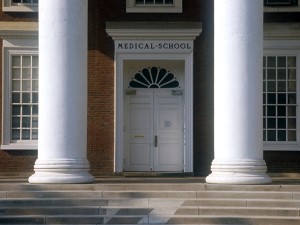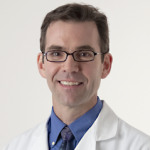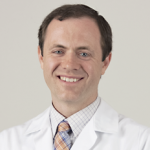Education
Division of General, Geriatric, Palliative & Hospital Medicine
EDUCATION

With almost its entire faculty involved in some way with undergraduate or graduate medical education, the division provides substantial teaching resources for Department of Medicine residents and medical students, as well as many students from other departments, including Family Medicine, Psychiatry, Emergency Medicine and Surgery.
Undergraduate Education
THE EDUCATIONAL MISSION
The division’s many contributions to undergraduate, graduate, post-graduate, and continuing medical education include:
Undergraduate
• Ambulatory Internal Medicine Clerkship
• Clinical Performance Development Directorship and CPD Leaders
• Curriculum Thread Leaders
• End-of-Life Care Thread Leader
• Foundations in Medicine
• Geriatric Clerkship
• Geriatric Elective
• Mindfulness Elective
• Palliative Medicine Elective
• Patient Safety Curricular Thread
• Phronesis Project
• Social Issues in Medicine
Graduate & Post-Graduate
• Ambulatory Curriculum for Internal Medicine Residency
• Geriatric Fellowship
• Palliative Medicine Fellowship
• Primary Care Residency Program
• Residency Continuity Practice
Continuing Medical Education
• Appreciative Practices in Healthcare
• Disclosure/Peer Support
• Effective Communication & Coping Skills
• Macy Humanism Faculty Development
• Mindfulness for Healthcare Providers
• Quality & Safety Leadership in Academic Medicine (QSLAM)
• Wisdom & Wellbeing Speaker Series
One of UVA Health System’s six goals is to “train healthcare providers of the future to work in multidisciplinary teams.” Launched in September 2014 as a pilot program, the Phronesis Project is doing just that, with the aim of instilling wisdom and empathy in medical students. Led by Margaret Plews-Ogan, MD, the program is broken into three components: affective, reflective and cognitive. In addition, each student is matched with an adult patient and pediatric patient for all four years of their training.
Making a significant contribution to undergraduate medical education in the School of Medicine, the Geriatric Clerkship moved to the fourth year of medical school during the 2014–2015 academic year. It continues to receive very high marks and provides a variety of clinical experiences and workshops. Its director, Huai Cheng, MD, received the Inaugural Medical Education Fellowship Award to support his teaching.

Evan Heald, MD, director of the Ambulatory Internal Medicine Clerkship and chair of the Brodie Endowment Fund.
Evan Heald, MD, continued to direct the very popular and successful Ambulatory Internal Medicine (AIM) Clerkship. AIM preceptors came to Charlottesville from all over the Commonwealth in October 2014 as part of the annual Recent Advances in Medicine Conference directed by Andrew Wolf, MD. Now in its 42nd year, the conference is the largest continuing medical education offering in the Department of Medicine, and is designed to provide updates on topics of relevance to the generalist physician. The conference attracts approximately 200 healthcare providers, mostly general internists and family physicians, from around the country with a heavy concentration from Virginia and the southeastern and Mid-Atlantic United States. The conference features short lectures organized by subspecialty or multidisciplinary theme followed by panel Q&A sessions. Breakfast and lunch “Meet-the-Professor” sessions allow for more informal interaction with faculty. The division is extremely well represented on the conference’s faculty roster.
Chaired by Evan Heald, MD, the Brodie Endowment Fund issued its annual awards and hosted the Gateway Dinner for new medical students. Also supported by the Brodie Fund was the Picture Humanism Project, which encouraged second-year Internal Medicine residents to envision what humanism means in the context of their continuity clinics.
Graduate & Postgraduate Education
Ira Helenius, MD; John Voss, MD; Andrew Wolf, MD; and Tammy Schlag, RN, provided critical leadership in developing and implementing the “3+1” component of the new residency structure, which included the design of a new Longitudinal Ambulatory Curriculum in generalist medicine. Highlights of this curriculum include a comprehensive series of interactive ambulatory medicine topics based on the Yale Office-Based Medicine curriculum, a longitudinal Practice-Based Learning & Improvement curriculum spearheaded by John Voss and Tammy Schlag, and weekly two-hour seminars and workshops addressing a broad array of topics critical to the development of general internists.
As associate program director of the department’s Internal Medicine Residency Program, Brian Uthlaut, MD, is in charge of medical resident recruitment and Andrew Wolf, MD, continues to serve as track director for the nine-resident Internal Medicine Residency Primary Care Track. Despite the languishing numbers of medical school graduates choosing primary care internal medicine careers, the track still draws and successfully recruits high-quality residents. It is encouraging that 26 percent of 2015 categorical track graduates chose primary care internal medicine careers — the highest percentage since the division began keeping records in 2004, when it averaged only 5 percent. Of the current primary care track residents in their second and third years (PG2 and PG3), all six are planning to pursue careers in general medicine; in addition, all three of the PG3 residents are aiming for careers in academic medicine — in palliative, geriatric, and general internal medicine, respectively.
The Geriatric Fellowship, directed by Seki Balogun, MBBS, CMD, FACP, AGSF, and the Palliative Medicine Fellowship, directed by Joshua Barclay, MD, received full five-year accreditations in FY 2013. Both programs have an established record of academic achievement and research work along with clinical excellence. Palliative Fellow Kathleen Schwarz, MD, recently accepted a full-time palliative position at UVA. The Palliative Fellowship program also was successful in receiving partial funding through a grant from the American Academy of Hospice and Palliative Medicine and the Hearst Foundation.
Continuing Medical Education
Home to the The Mindfulness Center and The Center for Appreciative Practice, as well as the Institute for Quality & Patient Safety, the division has been instrumental in developing many of the CME programs designed to advance wellness and facilitate cultural change.
The Mindfulness Center had a very successful year. More participants than ever enrolled in courses, which included “Mindfulness-Based Stress Reduction” (MBSR), “Mindfulness-Based Cognitive Therapy” (MBCT), “Mindfulness for Healthcare Providers,” “Mindfulness for Teachers and Educators,” the “Science and Practice of Mindfulness” and “Mindfulness Reconnect.” Many past participants also attended the daylong retreats held as part of all the eight-week classes and the Tuesday night meditation group.
As interest in mindfulness continues to grow and more opportunities to learn and practice are available, the Mindfulness Center remains committed to providing the highest quality, evidence-based mindfulness instruction possible, highlighted by the eight-week classes offered based on MBSR and MBCT. There are now over 450 articles in the medical literature addressing the effects of MBSR and MBCT, and a recently published review concluded that “the evidence supports the use of MBSR and MBCT to alleviate symptoms, both mental and physical, in the adjunct treatment of cancer, cardiovascular disease, chronic pain, depression, anxiety disorders and in prevention in healthy adults and children” (PLoS ONE 10(4):e0124344, 2015).
The Center for Appreciative Practice continued to produce the bimonthly Schwartz Rounds to standing room-only audiences of healthcare providers. The forum creates a moderated setting for the discussion of the social and emotional issues that arise in caring for patients. In addition to Schwartz Rounds, the Center produced the Wisdom & Wellbeing Speaker Series designed to present the latest research in improving well-being, life satisfaction and the cultivation of wisdom. This year’s series featured a line of eight extraordinary speakers reflecting a broad spectrum of scholarship in wisdom, positive psychology, mindfulness, resilience and other disciplines that support individuals and organizations wanting to flourish. In April 2015, the series hosted neuropsychologist and New York Times best-selling author Rick Hanson, who spoke on “The Practical Neuroscience of Happiness.”
The Quality & Safety Leadership in Academic Medicine (QSLAM) course was held again and well-received by faculty, fellows and Medical Center partners. This offering incorporated new content on lean methodologies in support of the Be Safe initiative and included panels showcasing successful quality improvement work in the Cardiology and Endocrinology divisions and at UMA.

